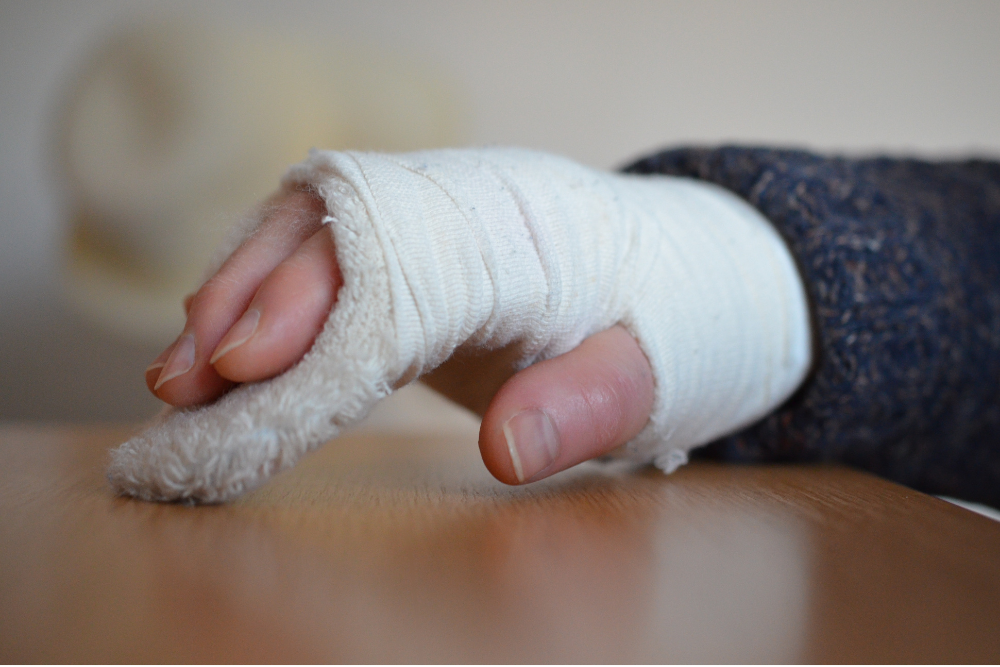A periprosthetic fracture is a break in the bone around an implanted joint prosthesis, such as a hip or knee replacement. These fractures can occur due to various reasons, including trauma, osteoporosis, or loosening of the implant.
Our Treatments
- Home
- Treatments

Periprosthetic Fractures
A periprosthetic fracture is a break in the bone around an implanted joint prosthesis, such as a hip or knee replacement. These fractures can occur due to various reasons, including trauma, osteoporosis, or loosening of the implant. Periprosthetic fractures can be challenging to treat and often require specialized surgical intervention.
Types of Periprosthetic Fractures
- Femoral fractures (around a hip implant)
- Tibial fractures (around a knee implant)
- Intraoperative fractures (occurring during joint replacement surgery)
Treatment Options
- Open reduction and internal fixation (ORIF) with plates, screws, or wires
- Revision surgery to replace the implant
- Non-surgical treatment for stable, non-displaced fractures


Comprehensive Evaluation
At Rejoice Orthocare Clinic, Dr. Ramakant Bhivsan begins with a thorough evaluation to assess the patient's condition, medical history, and overall health. This initial assessment helps determine the most appropriate treatment plan for the periprosthetic fracture, considering factors such as fracture type, implant stability, and the patient's overall health.
Surgical Planning
If surgery is recommended, Dr. Bhivsan and his team will carefully plan the surgical procedure. This includes determining the specific approach, selecting the appropriate implants and fixation devices, and ensuring the patient is properly prepared for the operation.
Periprosthetic Fracture Surgery
During the surgery, Dr. Bhivsan will perform the necessary procedures to stabilize the fracture and address any issues with the implant. This may involve open reduction and internal fixation (ORIF) or revision surgery to replace the implant, depending on the specific case.
Post-operative Care
After the surgery, the patient will receive comprehensive post-operative care, including pain management, wound care, and physical therapy. This phase is crucial for a successful recovery and regaining optimal joint function.
Rehabilitation and Recovery
Rejoice Orthocare Clinic provides a structured rehabilitation program to help patients regain strength, flexibility, and mobility after their periprosthetic fracture surgery. Dr. Bhivsan and his team closely monitor the patient's progress and provide guidance throughout the recovery process.
Follow-up and Ongoing Care
Regular follow-up appointments with Dr. Bhivsan are essential to ensure the long-term success of the periprosthetic fracture treatment. The clinic provides ongoing care and support to address any concerns or issues that may arise during the recovery and post-operative period.
Risk Factors and Prevention
Several factors can increase the risk of periprosthetic fractures, including osteoporosis, implant loosening, and trauma. Dr. Bhivsan emphasizes the importance of addressing these risk factors and taking preventive measures, such as:
- Bone density screening and treatment for osteoporosis
- Regular follow-up appointments to monitor implant stability
- Fall prevention strategies and assistive devices for those at risk
By addressing these risk factors and taking preventive measures, patients can reduce their chances of experiencing a periprosthetic fracture and ensure the longevity of their joint replacement.

Any Questions
The main types of periprosthetic fractures include femoral fractures (around a hip implant), tibial fractures (around a knee implant), and intraoperative fractures (occurring during joint replacement surgery).
Treatment options for periprosthetic fractures may include open reduction and internal fixation (ORIF) with plates, screws, or wires, revision surgery to replace the implant, or non-surgical treatment for stable, non-displaced fractures.
After periprosthetic fracture surgery, patients typically undergo a structured rehabilitation program to regain strength, flexibility, and mobility in the affected joint. The recovery process can be lengthy and may involve physical therapy and follow-up appointments with Dr. Bhivsan.
Risk factors for periprosthetic fractures include osteoporosis, implant loosening, and trauma. Addressing these risk factors through bone density screening, regular follow-ups, and fall prevention strategies can help reduce the chances of experiencing a periprosthetic fracture.
Absolutely! You can schedule a consultation with our experienced orthopedic surgeons at Rejoice Orthocare Clinic in Nashik by calling our office or filling out the online appointment form to discuss your condition and treatment options for periprosthetic fractures.
Sunday: 10AM - 8PM
info@drramakantbhivsan.com
